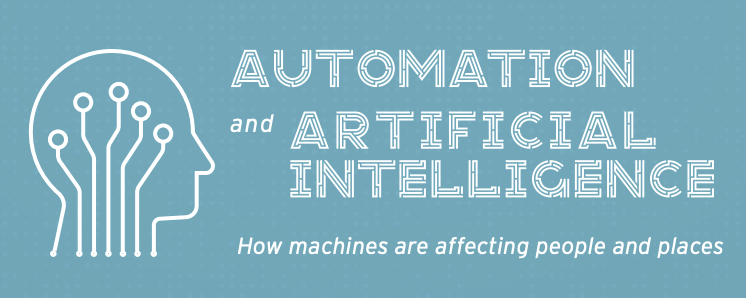Workers to Suffer Economic Blow without Intervention
A story on the World Economic Forum in Davos, Switzerland that ran in The New York Times captured perfectly the dilemma of mass automation of jobs, a trend that will occur during the next 10 years, according to a Brookings Metropolitan Policy Program report released on January 24.
The NYT story reported the contrasting public and private attitudes of corporate titans: anxious to replace people with robots and AI to cut costs when speaking to each other; publicly expressing concern for the human impact when interviewed by reporters.
The Davos gathering draws some of the wealthiest people in the world to the event, featured talks by economists, Wall Street movers and shakers and the head of the International Monetary Fund, Christine Lagarde.
“They crave the fat profit margins automation can deliver, and they see A.I. as a golden ticket to savings, perhaps by letting them whittle departments with thousands of workers down to just a few dozen,” wrote NYT reporter Kevin Roose from the event.
These comments by global management elite are even more concerning considering the newly released Brookings report, titled “Automation and Artificial Intelligence: How machines are affecting people and places.” It predicts that “25 percent of U.S. employment will have experienced high exposure to automation, while another 36 percent of U.S. employment will experience medium exposure, and another 39 percent will experience low exposure.”

The cover of the Brookings report.
Potentially, a quarter of the workforce⏤millions of U.S. workers⏤will become obsolete or need retraining to find a role in the workplace, the report said. The impact will occur at a higher rate in certain geographic areas.
“Places such as Las Vegas, Louisville, Ky., and Toledo, Ohio are among the most susceptible to the automation of job tasks, while the list of least susceptible places includes coastal giants such as Washington, D.C., the Bay Area, New York City, and Boston,” the report stated.
The report recommends a combination of corporate and government education programs to address the changes in demand for skilled workers.
“Occupations not requiring a bachelor’s degree are a staggering 229 percent more susceptible to automation compared to occupations requiring at least a bachelor’s degree. Just 6 percent of workers with a four-year degree or more are employed in jobs with a high potential for automation,” the report said.
Mark Muro, senior fellow and lead author of the report, warned that “policymakers, industry, and society as a whole needs to focus much more than they are on ensuring the coming transitions will work for all of those affected.”
Other concerns at the Davos event, according to Yahoo Finance, included the prediction of a 2019 economic slowdown, concern about data privacy, global warming and leveraged lending, or the threats posed by widespread corporate debt in the event of an economic downturn.








Leave A Comment